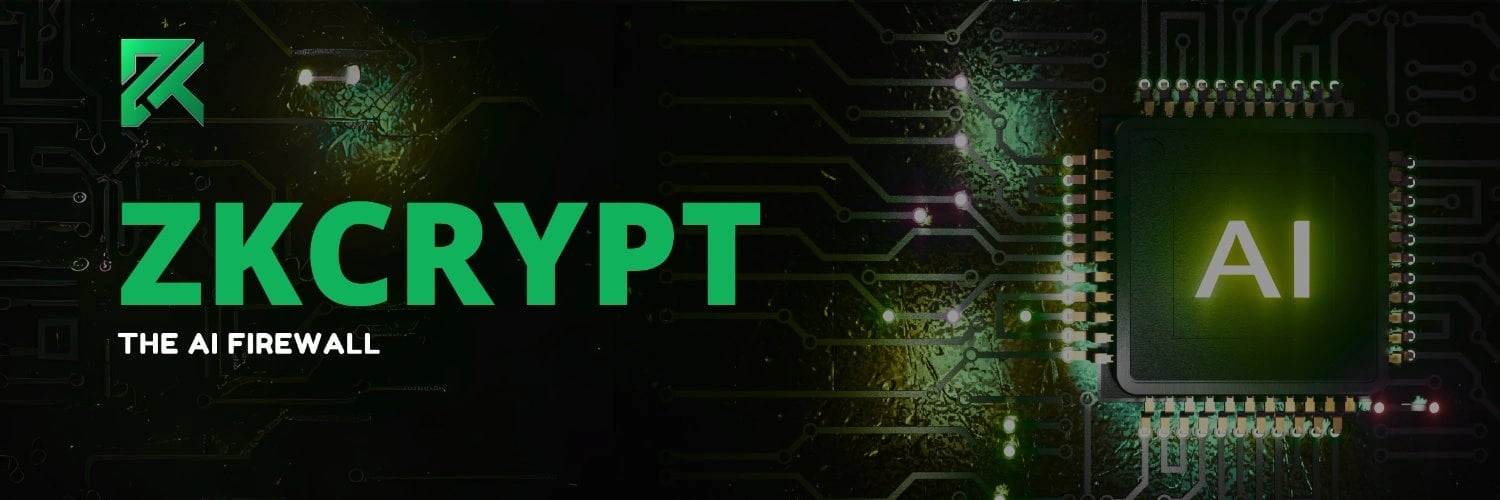Subscribe to wiki
Share wiki
Bookmark
ZKCrypt AI
The Agent Tokenization Platform (ATP):Build autonomous agents with the Agent Development Kit (ADK)
0%
ZKCrypt AI
ZKAI is a technology company that develops software and hardware solutions focused on secure and private AI interactions, with a suite of products designed to protect user data while providing advanced AI capabilities. [8]

Overview
ZKAI operates at the intersection of artificial intelligence and privacy technology, creating solutions that enable users to interact with AI systems without compromising their personal data. The company has developed a comprehensive ecosystem of products that includes secure AI agents, edge computing applications, and dedicated hardware devices, all designed with privacy as a core principle. ZKAI's approach addresses growing concerns about data security in AI interactions by implementing zero-knowledge cryptography and other privacy-preserving technologies. [1]
The company's technology stack is built to provide alternatives to conventional cloud-based AI systems that typically require sending user data to remote servers for processing. Instead, ZKAI emphasizes local processing and encrypted communications to minimize data exposure while maintaining high-quality AI capabilities. This approach positions ZKAI in the emerging market of privacy-focused AI solutions that aim to balance advanced functionality with robust data protection. [2] [8]
Ecosystem

SonicScribe V1
SonicScribe V1 launched on April 14th, marking the public debut of their privacy-focused audio agent. Designed to handle tasks like transcription and redaction with built-in security, SonicScribe V1 delivers advanced audio intelligence while prioritizing user privacy.
This release represents the first step in a broader vision for secure, AI-driven audio solutions. [6]
SecureGPT
SecureGPT is a privacy-oriented AI platform developed by ZKAI, designed to enable secure and anonymized interactions with large language models. The system filters sensitive information locally using custom Named Entity Recognition (NER) models before transmitting queries, helping to prevent data exposure.
Users can configure protection settings to specify which types of information are treated as sensitive. SecureGPT also employs a split processing system with TOR-based routing to anonymize traffic, ensuring that user identities remain untraceable—even to the platform itself. The tool is intended for individuals and professionals seeking AI functionality without compromising data privacy. [7]
Key Features
ZKAI incorporates several technologies to enhance security and privacy in AI applications:
- AI Firewall Integration: Acts as a protective filter for AI systems, blocking unauthorized access and removing sensitive information before cloud processing.
- Trustless Machine Learning: Supports decentralized learning models that function without requiring access to raw user data, reducing exposure to privacy risks.
- Zero-Knowledge Proof Integration: Allows verification of data or actions without revealing the underlying information, improving confidentiality during sensitive operations.
- HMAC for Data Integrity: Utilizes cryptographic hashing to verify the authenticity and integrity of data throughout training and communication processes. [1]
Utilities
Edge AI Application
ZKAI's Edge AI application leverages on-device processing to minimize data transmission and external dependencies:
- Local AI model execution that keeps sensitive data on the user's device
- Reduced latency through edge computing architecture
- Offline functionality for core features that don't require internet connectivity
- Selective cloud synchronization with privacy controls
- Regular updates to improve model performance while maintaining privacy standards [3]
Agentic AI
- Autonomous, privacy-preserving agents capable of handling tasks such as data analysis and information retrieval within isolated environments, maintaining data security throughout the process. [1]
Tokenomics

ZKCrytp AI Token ($ZKAI)
ZKAI is the native token of the ZKCryptAI ecosystem, with a fixed maximum supply of 10,000,000 tokens. The total supply also stands at 10,000,000, while data on circulating supply is currently unavailable. As of the latest update, the fully diluted valuation is approximately $1.08 million, with a 24-hour trading volume of $7,613.62.
ZKAI is primarily traded on decentralized exchanges, with Uniswap V2 (Ethereum) being the most active platform, where it is paired with WETH. [9]
Challenges and Limitations
Despite its privacy-focused approach, ZKAI faces several technical and market challenges:
- Performance tradeoffs when processing complex AI tasks locally on devices with limited resources
- Balancing privacy with the need for data to improve AI model performance
- Higher computational requirements for implementing zero-knowledge proofs
- Market education about the importance of AI privacy and the value proposition of ZKAI's approach
- Competition from larger technology companies that may incorporate similar privacy features [3]
See something wrong?
The Agent Tokenization Platform (ATP):Build autonomous agents with the Agent Development Kit (ADK)
